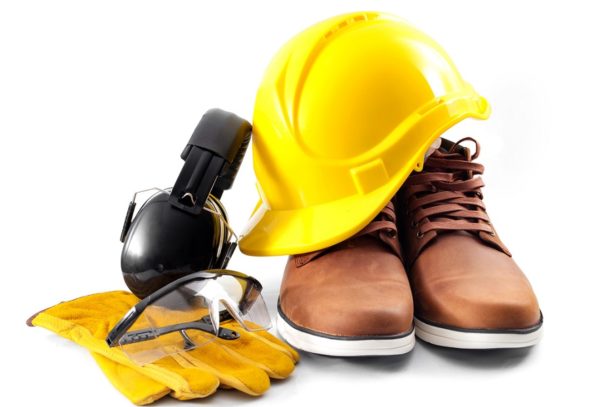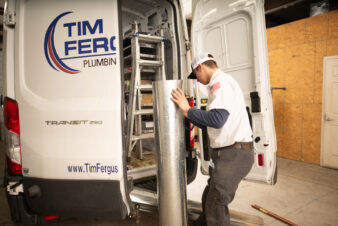Working as a mechanical engineer is rewarding for many reasons. For one, being a mechanical engineer allows you to have a wide range of career choices, such as aerospace engineering, marine engineering, and automobile engineering. Mechanical engineers are also exposed to global opportunities, get to spend their lives amidst technology, and become a jack of all trades.
For you to succeed as a mechanical engineer, you need to look after your health and safety at all times. Mechanical engineers often visit various worksites and utilize different devices, such as heating and cooling systems, industrial machinery, and robotics, which can be risky at times.
If you’re an aspiring mechanical engineer or are already working as one, always follow these health and safety tips.
Acquaint Yourself with OSHA Standards
Maintaining your health and safety can come off easier when you acquaint yourself with the OSHA standards. The Occupational Safety and Health Administration or OSHA sets the bar to ensure safe and healthy working conditions for employees by creating and implementing standards and providing education, training, and other forms of assistance.
In short, OSHA is the agency responsible for outlining best practices aimed to guarantee the safety of employees in different work environments. It also requires companies and employees worldwide to act in ways according to their set standards.
As a mechanical engineer, you must learn about OSHA standards before employment. Doing this will serve you two purposes: one, it ensures that you’re well-aware of your responsibilities, making it easier for you to complete tasks at work; two, it educates you on what companies should do when workers are injured or hurt at work. The second one is crucial because it helps you identify any compliance violations your employer might commit.
Familiarize Yourself with the Site
It’s common for mechanical engineers to work on different sites. You might be working in an office for one week, inside a plant for the next week, and then on a construction site for months. Every working environment poses different risks, which is why it’s important to familiarize yourself with the area.
Take some time to inspect your working site with someone already familiar with the area. Have the person accompany you as you conduct a walk-through to determine possible hazards. Make sure to raise some questions if you have queries about the site. For instance, you should know where the emergency exits are or what each sign means in the area.
Knowing where the fire extinguisher, eyewash station, and defibrillator are in the area will also make it easier for you to act out when emergencies arise. If you’re unaware of the emergency procedures of the site, make sure to ask.
Maximize Safety Training
Given the risks mechanical engineers have to face when working, employers are required to provide safety training to their employees. And while some view safety training as dull, dry, or time-consuming, it’s essential to your job as a mechanical engineer.
Participate in every safety training offered to you, regardless if it’s funded by your employer or facilitated by other organizations. These pieces of training are great resources for you to learn more about operational best practices and issue reporting. These can also teach about what you should and shouldn’t do the moment you experience an accident at work.

Use Personal Protective Equipment or PPE
Being familiar with your working environment or the tools you’re using isn’t enough to show up to work without any safety gear. Accidents can happen anytime and leave long-lasting consequences.
As a mechanical engineer, wearing your personal protective equipment or PPE should be a priority at all times. The proper use of PPE is mandated by the Occupational Safety and Health Administration (OSHA) to protect workers from health and safety risks at work and reduce their exposure to various hazards.
Generally, a mechanical engineer’s PPE is composed of the following:
- Protective face shield: Protective face shields are highly necessary to protect against sprays or splashes of hazardous liquids. Some face shields are also designed to protect the eyes and face from radiation.
- Safety glasses: This equipment protects your eyes from splashes or debris when working in a hazardous environment without compromising your comfort.
- Earplugs: Being exposed to machines that often create louse noises (usually above 120 decibels) can damage your hearing. Wearing high-quality earplugs can prevent this from happening as these can protect your hearing.
- Hard hats: Hard hats offer protection from falling, impact and penetration hazards, and electrical shocks.
- Steel-toed shoes: Wearing high-quality steel-toed shoes prevents different injuries, especially those caused by falling objects. Steel-toed shoes also prevent cuts and lacerations, punctures, burns, and slip and fall accidents.
Practice Good Housekeeping
Mechanical engineers require tools at work. However, these tools can do more harm than good when not kept or stored properly. For example, a vibration isolator left on the floor can cause slip and fall accidents.
To ensure your health and safety as a mechanical engineer, always practice good housekeeping at work. Since you’ll be working with various tools, often in a hazardous environment, you need to:
- Prevent slips and falls: According to the National Floor Safety Institute, falls are the second leading cause of injury-related death for individuals aged 85 years or older in the workplace. Protect yourself from slips and falls by maintaining the cleanliness and orderliness of your workplace. This should include keeping the passageways, service rooms, and storerooms in sanitary conditions.
- Eliminate fire hazards: Combustible wastes should be stored in metal receptacles and disposed of every day. If your job description requires you to use combustible materials, these should be kept in the work area only in small amounts. Flammable materials should be stored in a location away from ignition sources.
- Control dust: Dust covering at least 5% (about as thick as a paper clip or dime) of the room’s surface can become an explosion hazard. Prevent fire and dust explosions in your workplace by vacuuming dust from surfaces. You can also use wet methods and blow-downs with compressed air to remove dust.
- Clear clutter: Clutter will not only prevent you from working properly; it can also put you at higher risk of accidents and injuries. Make your workplace safer and healthier by clearing clutter regularly. This means that you should store tools after using them and dispose of items that you no longer need. Aisles, emergency exits, stairways, and electrical panels should also be free from clutter at all times.
Read All Safety Signages
Working as a mechanical engineer for years doesn’t exempt you from reading signages in your workplace. Regardless of how familiar you are with your workplace, reading safety signages should be part of your routine every day.
If you see any safety signage at work, don’t disregard them. Instead, pay heed to their location, what they mean, and how they will impact your work. For example, if you see warning signs in yellow, be wary of the dangers present in your workplace. If you see safety signs in blue, follow the actions indicated. Some examples of these signs include “Fire Door Keep Shut,” “Eye Protection Must Be Worn,” and “Protective Footwear Must Be Worn.”
Take Care of Chemical Substances
Mechanical engineers typically use chemical substances at work. Depending on the nature of your job, you might have to use petroleum products, caustic substances, acids, or glues. Chemical substances tend to create health and physical hazards and can be explosive, corrosive, flammable, or toxic when not stored properly.
Maintain your health and safety in the workplace by properly handling and storing chemical substances. You can achieve this goal by:
- Don’t move chemical substances that are visibly degrading. Instead, report these to your supervisor or investigator.
- When transporting chemical substances, place bottles inside a leak-proof secondary container to reduce spillage and breakage. For instance, if you’re going to move four-liter glass bottles of solvents or corrosives, place them inside a plastic tote bag.
- Always label chemical containers before storing them. If possible, include the expiration date of the chemical substance.
- Flammable liquids should only be stored in approved cabinets. For small amounts of flammable liquids, you can store them in an open room.
- When storing chemicals, use a designated refrigerator. These shouldn’t be stored in the same refrigerator where you store food. These chemicals produce vapors, which can contaminate food.
- Never store large and heavy containers of chemical substances in high cabinets or shelves. Ideally, these should be stored in places at shoulder level or below.
Prioritize Your Health and Safety
It’ll be challenging for you to make a name as a mechanical engineer if you compromise your health and safety at work. Instead of excelling in your field, you’ll end up losing money due to hospitalization and medical bills.
Always prioritize your health and safety when working as a mechanical engineer by incorporating the tips mentioned here into your daily routine. Sure, this will require you to be more cautious about your surroundings but doing so will be worth it in the end!




Join the conversation: